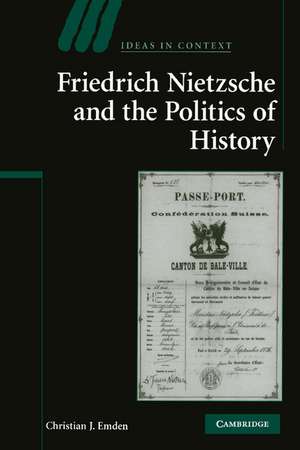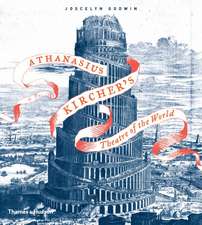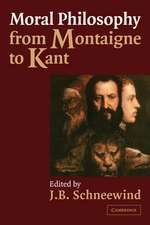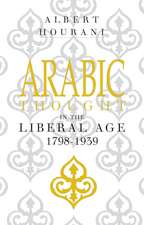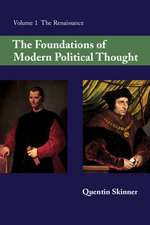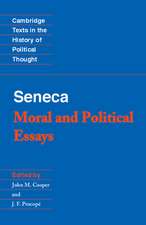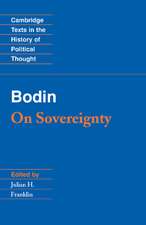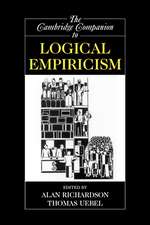Friedrich Nietzsche and the Politics of History: Ideas in Context, cartea 88
Autor Christian J. Emdenen Limba Engleză Paperback – 26 oct 2011
| Toate formatele și edițiile | Preț | Express |
|---|---|---|
| Paperback (1) | 325.01 lei 6-8 săpt. | |
| Cambridge University Press – 26 oct 2011 | 325.01 lei 6-8 săpt. | |
| Hardback (1) | 481.17 lei 6-8 săpt. | |
| Cambridge University Press – 7 mai 2008 | 481.17 lei 6-8 săpt. |
Din seria Ideas in Context
-
 Preț: 200.64 lei
Preț: 200.64 lei -
 Preț: 200.28 lei
Preț: 200.28 lei - 9%
 Preț: 592.59 lei
Preț: 592.59 lei -
 Preț: 200.38 lei
Preț: 200.38 lei -
 Preț: 200.42 lei
Preț: 200.42 lei -
 Preț: 178.15 lei
Preț: 178.15 lei -
 Preț: 230.08 lei
Preț: 230.08 lei -
 Preț: 240.27 lei
Preț: 240.27 lei - 9%
 Preț: 627.28 lei
Preț: 627.28 lei -
 Preț: 224.34 lei
Preț: 224.34 lei - 11%
 Preț: 695.06 lei
Preț: 695.06 lei - 11%
 Preț: 693.36 lei
Preț: 693.36 lei - 9%
 Preț: 626.79 lei
Preț: 626.79 lei - 9%
 Preț: 626.37 lei
Preț: 626.37 lei -
 Preț: 169.70 lei
Preț: 169.70 lei - 11%
 Preț: 626.38 lei
Preț: 626.38 lei -
 Preț: 246.32 lei
Preț: 246.32 lei - 8%
 Preț: 530.33 lei
Preț: 530.33 lei - 27%
 Preț: 648.35 lei
Preț: 648.35 lei - 9%
 Preț: 592.06 lei
Preț: 592.06 lei -
 Preț: 186.95 lei
Preț: 186.95 lei -
 Preț: 188.70 lei
Preț: 188.70 lei -
 Preț: 192.99 lei
Preț: 192.99 lei -
 Preț: 160.82 lei
Preț: 160.82 lei - 11%
 Preț: 583.02 lei
Preț: 583.02 lei -
 Preț: 200.74 lei
Preț: 200.74 lei - 11%
 Preț: 585.25 lei
Preț: 585.25 lei -
 Preț: 276.77 lei
Preț: 276.77 lei -
 Preț: 185.17 lei
Preț: 185.17 lei -
 Preț: 178.45 lei
Preț: 178.45 lei - 11%
 Preț: 583.56 lei
Preț: 583.56 lei -
 Preț: 179.68 lei
Preț: 179.68 lei - 11%
 Preț: 584.90 lei
Preț: 584.90 lei -
 Preț: 375.56 lei
Preț: 375.56 lei -
 Preț: 284.17 lei
Preț: 284.17 lei -
 Preț: 285.54 lei
Preț: 285.54 lei -
 Preț: 298.92 lei
Preț: 298.92 lei -
 Preț: 282.87 lei
Preț: 282.87 lei -
 Preț: 288.04 lei
Preț: 288.04 lei -
 Preț: 284.56 lei
Preț: 284.56 lei - 14%
 Preț: 757.52 lei
Preț: 757.52 lei
Preț: 325.01 lei
Nou
Puncte Express: 488
Preț estimativ în valută:
62.21€ • 67.60$ • 52.29£
62.21€ • 67.60$ • 52.29£
Carte tipărită la comandă
Livrare economică 21 aprilie-05 mai
Preluare comenzi: 021 569.72.76
Specificații
ISBN-13: 9780521155076
ISBN-10: 052115507X
Pagini: 404
Dimensiuni: 152 x 229 x 23 mm
Greutate: 0.59 kg
Editura: Cambridge University Press
Colecția Cambridge University Press
Seria Ideas in Context
Locul publicării:Cambridge, United Kingdom
ISBN-10: 052115507X
Pagini: 404
Dimensiuni: 152 x 229 x 23 mm
Greutate: 0.59 kg
Editura: Cambridge University Press
Colecția Cambridge University Press
Seria Ideas in Context
Locul publicării:Cambridge, United Kingdom
Cuprins
Acknowledgements; Abbreviations and translations; Introduction; Part I. The Failure of Neohumanism: 1. Philologists, liberals, and the nation; 2. The Austro-Prussian War in Leipzig; 3. The demands of history; 4. Toward a cautious materialism; 5. Teleology and the laws of history; Part II. The Formation of Imperial Germany, Seen from Basel: 1. Intellectual culture in Basel; 2. The practice of cultural history; 3. The need for philosophical education; 4. The 'German Spirit' and the Franco-Prussian War; Part III. The Crisis of Historical Culture: 1. The crisis of historicism; 2. What is orientation in history?; 3. The political mobilization of myth; 4. 'The Soul of the Antiquarian'; 5. The impossible critical historian; Part IV. Political Lessons from Cultural Anthropology: 1. The view from outside; 2. Lessons from anthropology; 3. Metaphor, myth and cultural reality; 4. 'Survivals': religion and the state; 5. Political realism and the 'Free Spirit'; Part V. Geneology, Naturalism and the Political: 1. The path to geneology; 2. A natural history of moral communities; 3. Sovereign individuals and the ethic of responsibility; 4. The task of geneology; 5. 'To translate humanity back into nature'; Part VI. The Idea of Europe and the Limits of Geneology: 1. 'The creation of the European individual'; 2. Beyond the modern nation state; 3. Political realities in Imperial Germany; 4. Modernity and the limits of geneology.
Recenzii
'It is one of the great merits of Christian Emden's Friedrich Nietzsche and the Politics of History that he attempts one of the richest and most detailed accounts of Nietzsche's relationship to late nineteenth-century Germany's cultural and political inheritance, situation, and challenges. … It is to Emden's credit that he has begun a far more serious and historically informed investigation of who Nietzsche as a thinker of the historical and the political was and what he wanted.' R. Kevin Hill, Political Theory
'Christian Emden's Friedrich Nietzsche and the Politics of History is an ambitious, provocative work. It aims to provide a synthetic reinterpretation of Nietzsche's intellectual itinerary during the quarter century between his earliest university notebooks and the texts produced immediately preceding his mental collapse.' John E. Toews, H-Net: Humanities and Social Sciences Online
'Emden brings alive not just the intellectual debates, but also the internal and geopolitical manoeuvrings, of the age of Nietzsche. … Emden succeeds in this important book in showing why, in the words of Human, All-Too-Human, 'we need history'.' Paul Bishop, Journal of European Studies
'Emden's account of German intellectual life is detailed and engaging. … [He] likens Nietzsche's political vision to those of Burke and Tocqueville, critical of unrestrained (though not all) democracy while praising an open-textured notion of moral community.' Vincent Lloyd, The Heythrop Journal
'[Emden] aims, through a contextualist reading, to reconstruct the political content that Nietzsche's writings would have been understood to have in their contemporary context. At the same time, he holds that we can thereby recover a distinctive and compelling contribution to political thought. … Emden's detailed, scholarly, and original interpretation brings to light important themes in Nietzsche's work.' Tamsin Shaw, Perspectives on Politics
'Christian Emden's Friedrich Nietzsche and the Politics of History is an ambitious, provocative work. It aims to provide a synthetic reinterpretation of Nietzsche's intellectual itinerary during the quarter century between his earliest university notebooks and the texts produced immediately preceding his mental collapse.' John E. Toews, H-Net: Humanities and Social Sciences Online
'Emden brings alive not just the intellectual debates, but also the internal and geopolitical manoeuvrings, of the age of Nietzsche. … Emden succeeds in this important book in showing why, in the words of Human, All-Too-Human, 'we need history'.' Paul Bishop, Journal of European Studies
'Emden's account of German intellectual life is detailed and engaging. … [He] likens Nietzsche's political vision to those of Burke and Tocqueville, critical of unrestrained (though not all) democracy while praising an open-textured notion of moral community.' Vincent Lloyd, The Heythrop Journal
'[Emden] aims, through a contextualist reading, to reconstruct the political content that Nietzsche's writings would have been understood to have in their contemporary context. At the same time, he holds that we can thereby recover a distinctive and compelling contribution to political thought. … Emden's detailed, scholarly, and original interpretation brings to light important themes in Nietzsche's work.' Tamsin Shaw, Perspectives on Politics
Descriere
This book explores Nietzsche's understanding of modern political culture and his position in the history of modern political thought.
